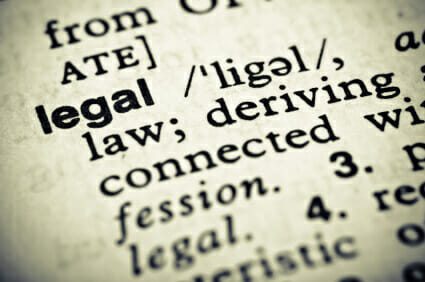How Will My Attorney Determine Whether I Have a Case Following an Accident?

If you have suffered injury due to the negligence or reckless behavior of another, you may be entitled to financial compensation. To determine whether or not you have a case, your attorney will examine the facts and evidence of your accident and injuries.
Identifying Your Injuries Following an Accident
The first thing your attorney will advise you to do is to get adequate medical attention. Getting medical treatment for your injuries is not only essential to building your personal injury case, it is also essential to your physical recovery and getting your life back on track.
If you have been involved in an accident, you should go to a doctor that you trust. You want to make sure that all of your injuries and any potential long-term effects are identified. Once your doctor considers your condition to be stable, your attorney will begin to sort through your medical bills in order to determine their financial impact.
Identifying and Proving Negligence and Liability
While you are receiving medical attention, your attorney will be looking at the evidence of your accident to identify and determine liability. In order for you to seek compensation, your attorney will have to show that your injuries were the result of another person’s negligence.
Negligence is defined as a failure to behave with the level of care that a reasonable person would have exercised under the same circumstances. While the behavior in question usually consists of actions, it can also consist of omissions when there is some duty to act.
In attempting to ascertain whether a person’s conduct or behavior lacked reasonable care, your attorney will consider the four elements that are required to establish a prima facie case (a legally required rebuttable presumption). The elements are:
- The existence of a legal duty that the defendant owed to the plaintiff
- The defendant’s breach of that duty
- The plaintiff’s sufferance of an injury
- Proof that the defendant’s breach caused the plaintiff’s injury
Determining the Existence of a Legal Duty
While analyzing potential negligence in your case, your attorney will attempt to establish the existence of a legal duty owed to you by the person responsible for your injuries. In law, there are two kinds of duty that can be owed:
- Duty of Care: A duty to conduct oneself in a manner that a person of ordinary prudence, acting under similar circumstances, would conduct himself. (i.e. Would a reasonable person have acted the way the defendant acted while operating a motor vehicle if the reasonable person was operating a motor vehicle under circumstances similar to those as the defendant?)
- Special Duty: A duty imposed by a statute or case law which may exist either in addition to or in place of general duty of care. (i.e. A statute requiring drug manufacturers to list possible side effects, contraindications, and warnings on product labels.)
To determine whether a general duty of care or a special duty was owed, lawyers and courts look at the relationship between the plaintiff and the defendant and identify if a duty was owed based on that relationship.
Proving that Breach of Duty Caused the Injury
The final part of forming a prima facie negligence case is establishing proof that your injuries were caused by the defendant’s breach of duty. There are two types of causation in cases of negligence which must be addressed:
- Cause-in-Fact Cause (Actual Cause): Cause-in-fact is pretty straightforward. It simply states that the actions of the defendant are the actual cause of the plaintiff’s injuries. This can normally shown through the “but-for” test. For example, if a bus driver ran a red light and hit a pickup and the driver of the pickup suffered back injuries, the “but-for” test would state “But for the bus driver running the red light, the pickup driver would not have sustained his back injuries.”
- Proximate Cause (Legal Cause): Proximate cause deals with the question of foreseeability: Are the injuries of the plaintiff suffered a forseeable result of the defendant’s behavior? For example, a drunk driver hitting and killing a pedestrian is a foreseeable consequence of the driver choosing to get behind the wheel while intoxicated. However, if a drunk driver were to collide with an 18-wheeler carrying volatile chemicals which exploded on impact and caused a poorly maintained utility pole a half-mile away to fall over and injure a pedestrian on a late night walk, it is unlikely the drunk driver would be held liable for the pedestrian’s injuries as the collapse of the utility pole is a highly unforeseeable consequence of the defendant’s drunk driving.
Another way to think of proximate cause is that the injury of the plaintiff should be close (proximate) in time and close (proximate) in the “chain of causation” linked to the defendant’s actions.
What Should I Do If I’ve Been Injured in an Accident?
The best thing you can do if you have been injured in an accident is seek immediate medical attention. Your health should always be at the forefront of your mind. Beyond that, contact an experienced attorney for a free consultation.
Thomas J. Henry has been handling personal injury cases for more than 25 years and has a team of more than 100 attorneys ready to review your case. Our attorneys are available to assist you 24/7, nights and weekends
Blog













